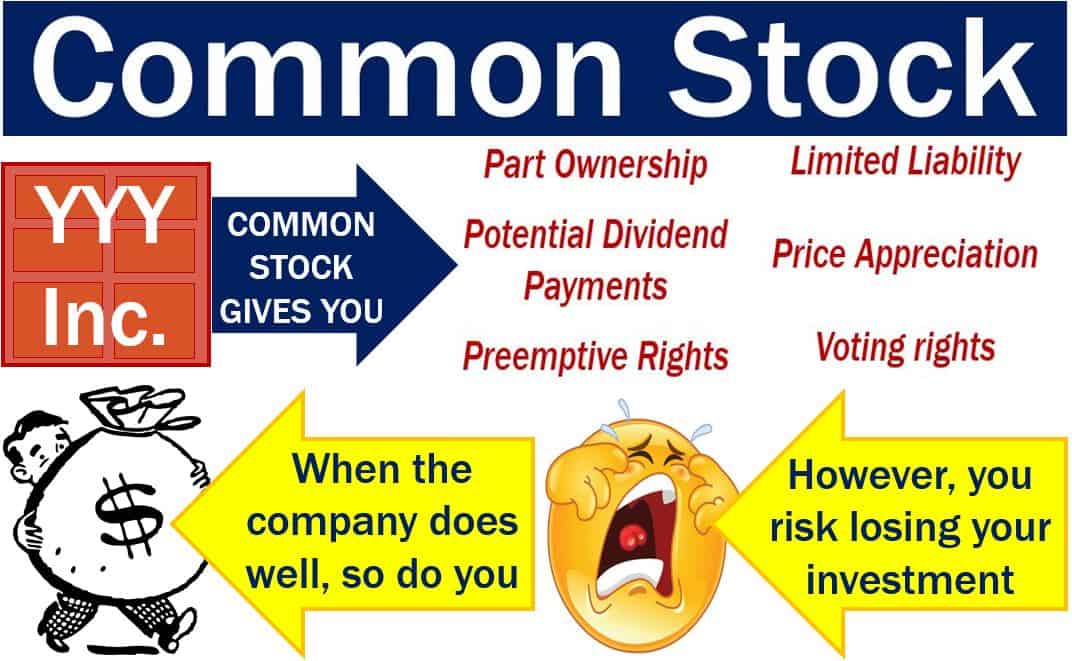Common stock or common equity is a form of corporate equity ownership. In other words, it is a way of owning part of a company. It is a kind of security. Common stock is a term Americans use more than British people. In the UK, people say ordinary share or voting share.
We call someone who owns common stock a common stockholder or common shareholder. We may also simply call them shareholders.
Common equity is one of the financial attributes that investors and analysts examine. A company’s financial attributes tell us how health or unhealthy it is financially.

Companies pay the preferred stock dividends first, and then the common stock dividends. Preferred stock has a higher claim on the earnings and assets of a company than common stock. Common stocks are riskier than preferred stocks. Nevertheless, common stocks are more popular.
If a company goes bankrupt, it pays creditors, bondholders, and preferred stockholders any remaining funds first. Only then does it pay common stock investors.
Investors with common shares often receive nothing after a business has gone into liquidation.
However, on average, common shares perform better than bonds or preferred shares over the medium and long term. Therefore, investors buy more common shares than preferred shares.
Common stock – shareholders’ rights
If you own common stock, you can vote on who is on the board of directors. However, if the stock is of a ‘non-voting’ class, then you can’t vote. Preferred stockholders do not have voting rights.
People with common voting stocks have a say in the company’s objectives and policy. Common stockholders also have a say on a company’s stock split. In other words, they have a say when a company increases the number of shares outstanding.
Sometimes, common stockholders can retain their proportional ownership of the company if it issues more shares.
Unlike preferred stock, common stock has no set dividend payout. Dividends amounts depend on the company’s earnings and how much it decides to reinvest. Dividends also depend on the efficiency of the market to value and sell stock.
Many new investors believe they should begin with preferred stock, rather than common stock. Experts say this might not be the best decision.
Which type of stock to buy depends on the investors’ financial goals and whether they are interested in having voting rights. People’s tolerance for risk also determines what type of stock they should buy.
Earning money from shares
There are two ways people can earn money when they invest in stocks. First dividends, and second price appreciation.
If you are a shareholder in a company that does well, many investors will be after your shares. In other words, your shareholder status will be attractive.
As demand for those shares rises, so does their price. We call this increase price appreciation. If you sell those shares when their price has appreciated, you will make money.
Video – Types of stocks
This video talks about the difference between Common Stock and Preferred Stock. It also advises you on the differences you should consider when deciding which stock to add to your portfolio.
